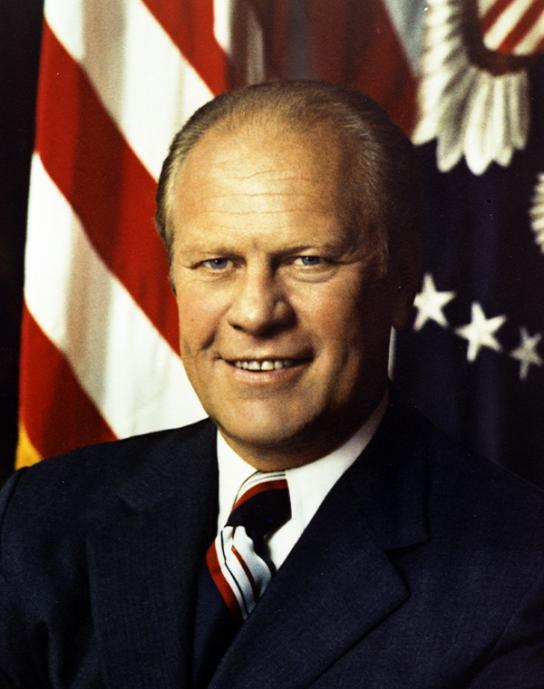I want to serve the public interest. Whether it be working toward a safer, more transparent healthcare system or developing programs to improve access, I want to become a leader who puts people first and gives back to the communities that have given me so much."
Bilal Baydoun (MPP '17), the first Gerald R. Ford Presidential Fellow
About the fellowship
When Gerald R. Ford returned to Grand Rapids, Michigan, from World War II service, he chose to run for public office. It wasn't because he sought the limelight, but because he believed strongly in a bold, constructive vision for a globally-engaged post-war America—a vision diametrically opposed to that of his Congressional district’s five-term incumbent. The voters agreed, and for the next six decades, Ford never looked back, and never stopped leading.
In keeping with President Ford’s legacy, the Ford School seeks to inspire the next century of citizens, public servants, and leaders. On the occasion of the 100th anniversary of the Ford School and the 101st anniversary of President Ford’s birth, we launched an effort to raise $3 million to permanently endow two full graduate fellowships for the most exceptional Ford School applicants. Gerald R. Ford Presidential Fellows:
- Exemplify the president’s commitment to bipartisan cooperation and civility,
- Are deeply and positively engaged in community service, and
- Intend to pursue a lifelong career in the public sector.
Meet the GRF Fellows
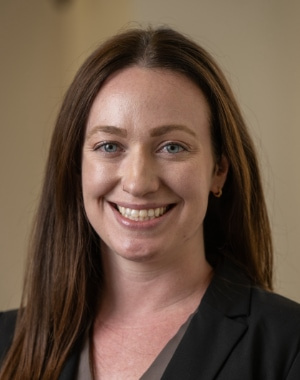
Megan Connors (MPP ‘26) has seven years of experience teaching history and geography at a public high school in Brooklyn, New York. As an educator, Connors worked to improve academic outcomes for students from a wide range of demographic and socioeconomic backgrounds, and was instrumental to developing her school’s Advanced Placement Human Geography program. She also conducted research and created curricular resources for New York City’s AP for All Initiative, which increased advanced placement course access and achievement for low-income and minority students. Prior to teaching, Connors received her master’s in teaching of social studies from Teachers College, Columbia University and her BA in public policy with a minor in history from Stanford University, where she graduated Phi Beta Kappa. While at the Ford School, Connors is excited to expand the breadth and depth of her social policy knowledge, and develop skills in quantitative analysis so that she can help create policies that will support teachers and make it easier for all students to come to school ready to learn.
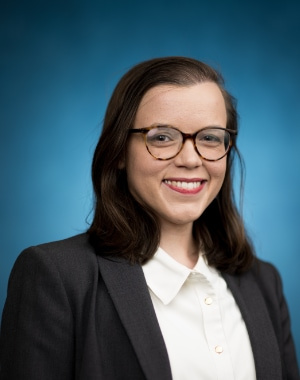
Kathleen Bryant (MPP '25) has more than five years of experience working at the intersection of federal fiscal policy and social policy. Before coming to Michigan, Kathleen spent more than two years at the Tax Law Center at NYU Law School, where she published research on ways to advance equity in tax administration and improve the design and delivery of refundable tax credits serving low-income families. She previously spent nearly three years as a research assistant (later associate) on the Federal Fiscal Policy team at the Center on Budget and Policy Priorities (CBPP), where she analyzed a wide range of federal tax provisions, trends in federal spending on social programs, and macroeconomic conditions. During college, she interned for the Economic Policy Institute, CBPP's Government Affairs team, and EMILY's List. Kathleen graduated from The College of William & Mary in 2018 with a BA in Public Policy and a minor in History.
-
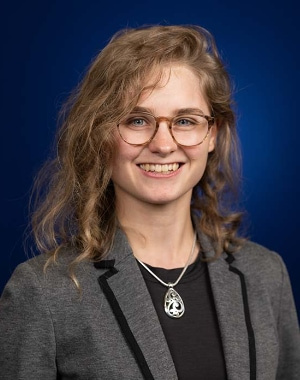
Katie Hyland (MPP ’24) has worked for over three years in education research and policy on projects in early childhood education, higher ed, and federal accountability. At American Institutes for Research, Katie supported a research practice partnership in Flint, Michigan and served as a Local Evaluation Partner with Educare Flint and Cummings Great Expectations preschools, where she worked closely with local stakeholders and led the collection and analysis of student social-emotional data in order to help teachers better track their students’ needs over time. Katie has also conducted quantitative analyses of schools identified for support under the Every Student Succeeds Act and has contributed to multiple reports with the Department of Education’s Institute of Education Sciences. Prior to her time at AIR, Katie was a Fulbright English Teaching Assistant in Kolkata, India and graduated with a BA in English and Economics at Georgetown University. While at the Ford School, Katie is excited to further hone her skills in quantitative and qualitative analysis, so that she can be more thoughtful and nimble in developing research to serve communities.
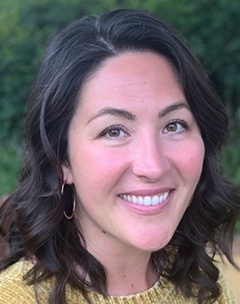
As a passionate public servant, Elena Davert (MS/MPP ’23) has spent most of her career working at the intersection of equity and sustainability. Before joining the Ford School, she spent 5 years designing and implementing grant programs for the State of California, working most extensively in the cities of Los Angeles, Fresno, and Stockton. During this time she helped launch the Transformative Climate Communities Program (TCC), a first-of-its kind grant program that empowers California's most vulnerable communities to choose their own goals and strategies to reduce greenhouse gas emissions while also supporting community engagement, workforce development, and anti-displacement initiatives. During her time in graduate school, Elena has worked with the U.S. EPA’s State and Local Climate and Energy Branch and Michigan’s Office of Climate and Energy, and is currently completing a capstone research project studying fossil fuel and renewable energy production and their contributions to local tax revenue. She hopes that these experiences, combined with her coursework in environmental policy, program evaluation, and public management, will make her a more effective and collaborative policy leader. Elena holds a BA in environment, economics, and politics from Claremont McKenna College.
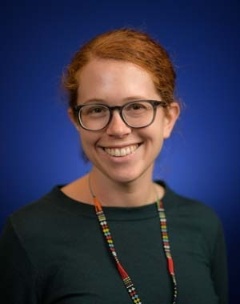
Rebecca Ackerman (MPP '21) is a data scientist, social science researcher, and technologist who focuses on building systems that work. She is currently a consultant working on technology for abortion rights. Before coming to the Ford School, she was a data scientist at New York County Defender Services, where she developed a program for pairing data and practice for more effective indigent defense. Prior to NYCDS, she worked at Case Commons, using data-driven design to transform child protective services through software improvement. In 2016, she helped redesign California's statewide child protective services information management system. Prior to Case Commons, she was a Code for America Fellow working with the City of San Francisco. She has also done program evaluation and community organizing in Chicago. Rebecca is also a graduate of the University of Chicago.
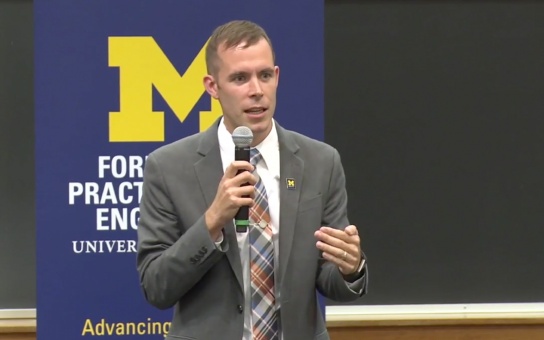
Karl Hoesch (MPP '20), the 2018 Gerald R. Ford Presidential fellow, interned at the Office of Climate and Energy, in the Michigan Department of Environment, Great Lakes, and Energy. The internship, along with Ford School courses nurtured his interest in energy justice, at the intersection of energy, housing and health policy. Hoesch is now pursuing a PhD at the University of Michigan School for Environment and Sustainability. Prior to coming to the Ford School, Hoesch taught high school Spanish for two years in Memphis, TN with Teach For America before joining the admissions office at Hope College, his alma mater.
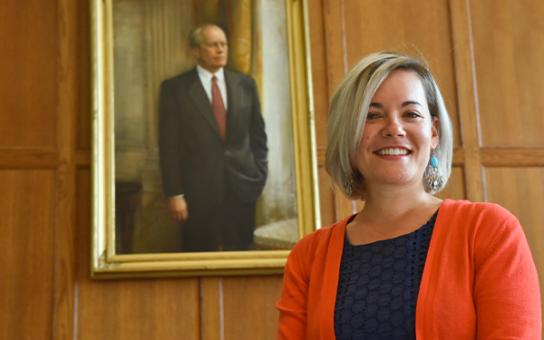
Megan Nestor Megan Nestor, the 2017 Gerald R. Ford Presidential Fellow, spent close to a decade working with non-profit organizations that combat the systemic inequities facing low-income students of color. Prior to joining the Ford School, she served as program director of The Opportunity Network, an organization that helps historically underrepresented students prepare for college and careers. During that time, Nestor also served as an avid volunteer for the Appalachian Mountain Club's Youth Opportunities Program, which works to introduce urban youth to outdoor adventures.
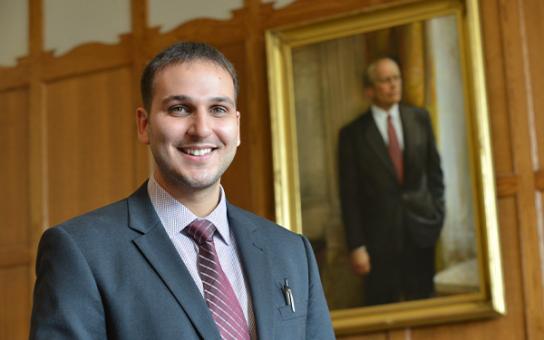
Bilal Baydoun Bilal Baydoun, the 2015 Gerald R. Ford Presidential Fellow, is a policy and communications advisor for the Michigan Department of Attorney General. He has also served as a Foreign Policy Associate at the Clinton Foundation and a Government Innovation Fellow at the Harvard Kennedy School. Baydoun focused his Ford School policy education on government performance management, U.S. social policy, and international affairs. Baydoun was previously a business analyst at the Detroit-based Data Consulting Group, where he worked to deliver solutions in multiple corners of the healthcare sector. As a first-generation college student, he volunteered extensively for Doors of Opportunity, a student-led organization that provides financial aid and college admissions advice to secondary students in Dearborn's Arab community. Baydoun holds a bachelor's degree in history from the University of Michigan and a master's degree in public policy from the Ford School.

